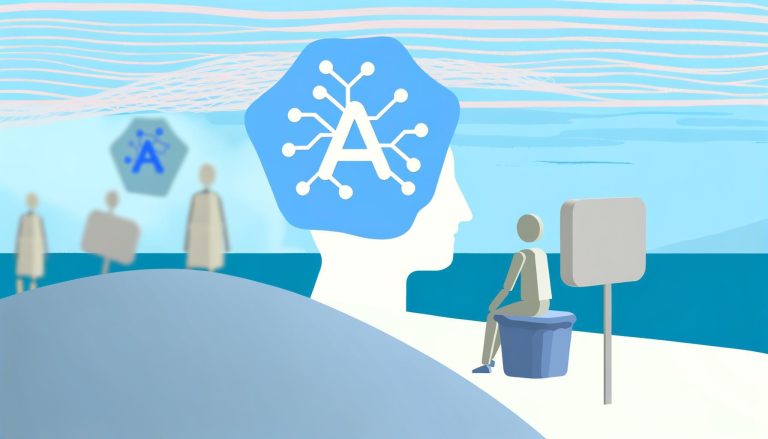Night Eating Syndrome (NES) is a complex and often misunderstood eating disorder characterized by nocturnal food consumption and morning anorexia. The advent of Artificial Intelligence (AI) has opened new avenues in treating various health conditions, including NES. This article will explore the impact AI has on treating Night Eating Syndrome, examining its benefits, practical applications, and implications for the future of mental health and wellness.
Introduction to Night Eating Syndrome
Night Eating Syndrome is more than just late-night snacking; it’s a recognized eating disorder that can severely affect an individual’s physical and mental health. Understanding NES requires acknowledging its symptoms, causes, and consequences:
- Symptoms: Eating a significant portion of daily food intake during the night, insomnia, and a lack of appetite in the morning.
- Causes: Often linked to emotional distress, hormonal imbalances, and stress.
- Consequences: Weight gain, sleep disturbances, and mental health issues like depression and anxiety.
The Role of AI in Treating Night Eating Syndrome
Personalized Treatment Plans
AI has significantly improved personalized treatment plans by analyzing vast amounts of data. Machine learning algorithms can identify patterns and triggers in individual behaviors, helping to tailor interventions that are specifically designed for the person’s unique needs.
Behavioral Analytics and Monitoring
With AI-driven applications, continuous monitoring of eating patterns, sleep habits, and emotional states is possible. This real-time data collection helps in providing instant feedback and advice to manage symptoms effectively.
Virtual Counseling and Cognitive Behavioral Therapy (CBT)
AI-powered chatbots and virtual assistants offer a convenient and accessible way to provide Cognitive Behavioral Therapy (CBT). These tools can guide individuals through CBT exercises, track their progress, and adjust strategies based on real-time feedback.
Predictive Analytics
Predictive analytics helps in forecasting potential relapses by identifying early warning signs. This proactive approach ensures that interventions can be made before the condition worsens, making treatment more effective in the long run.
Benefits and Practical Applications of AI
Accessibility
AI-driven tools provide round-the-clock support, making mental health resources accessible to those who might not have the means or time to see a therapist in person. This is particularly beneficial for individuals with NES, who often struggle in isolation.
Consistency
AI ensures consistent monitoring and feedback, which is crucial for managing NES. Human therapists may not always be available, but an AI tool can offer continuous support.
Cost-Effectiveness
Utilizing AI in the treatment of NES can reduce costs associated with traditional therapy. Virtual assistants and monitoring tools can offer similar benefits without the hefty price tag of regular therapy sessions.
Data-Driven Insights
The use of AI provides actionable insights through data analysis. By understanding trends and patterns, more effective treatment plans can be developed, and adjustments can be made in real-time to improve outcomes.
Challenges and Ethical Considerations
Data Privacy Concerns
The use of AI involves collecting and analyzing personal data, which raises concerns about data privacy and security. It’s crucial to ensure that the data is encrypted and that strict privacy policies are in place to protect user information.
Human Touch and Empathy
While AI can offer consistent and data-driven support, it may lack the human touch and empathy that are often vital in mental health treatment. A hybrid approach, incorporating both AI and human intervention, may be the most effective.
Algorithmic Bias
AI systems are only as good as the data they are trained on. Ensuring that the data used is unbiased and representative is essential to avoid skewed treatment plans that could be less effective for certain populations.
Practical Tips for Using AI in Treating NES
- Choose Reputable Tools: Ensure that the AI tools you use are from reputable sources and have strong privacy policies.
- Combine with Human Support: Use AI as a supplement to, rather than a replacement for, traditional therapy.
- Regular Monitoring: Frequently review the data and feedback provided by AI tools to make necessary adjustments in treatment plans.
- Stay Informed: Keep up with the latest advancements in AI and mental health to leverage new tools and strategies.
Conclusion
AI’s impact on treating Night Eating Syndrome is profound and multifaceted, offering personalized treatment plans, real-time monitoring, virtual counseling, and predictive analytics. While challenges like data privacy and the need for human empathy remain, the benefits of AI-driven tools in managing NES are undeniable. Utilizing AI in a balanced and ethical manner can significantly improve the quality of care for individuals suffering from this condition.
For those looking to manage their Night Eating Syndrome, incorporating technology such as mood and habit tracking applications can be highly beneficial. Apps like Zenora, which offer features like journalling, goal tracking, and statistical analyses of habits and moods, can provide valuable insights and support on your journey to better health.





